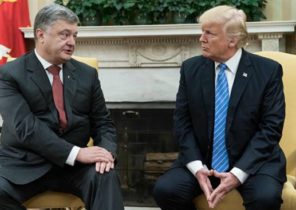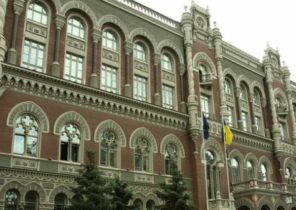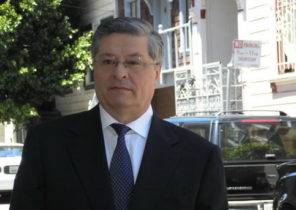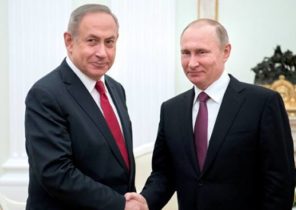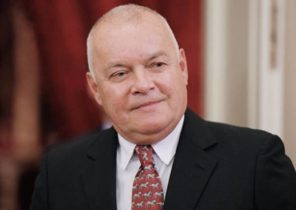
The idea of creating a U.S.-Russian working group on cyber security, which was proposed at the summit of “Big twenty” Donald trump, it looks absurd, but it does not mean that Russia and the United States should refuse any cooperation in this field.
After a conversation with Vladimir Putin at the summit of “Big twenty” in Hamburg, the President, Donald trump declared that they decided to start work on the creation of protected from external influences of the working group on cyber security, which task will be countering hacking attacks during elections and electoral campaigns. Experts criticized the idea of harsh criticism, so that Trump in the end had to abandon it. However, Russia and the United States continue to cooperate in the field of mainstreaming of the virtual world at the sites of different organizations.
Difficult beginning
The first attempt to tie a cooperation with the United States in the information sphere, to limit it to the arms race, Russia has been actively undertaken already in 1990-ies. She even tried to hold the UN treaties prohibiting the use of information as a weapon, but the Americans such a proposal was rejected. Meanwhile, this has not prevented the emergence of a “Joint statement on the theme of security challenges at the turn of the XXI century”, which referred to the need to mitigate the possible consequences of the information revolution and use the chances, which she gives to humanity. The document also discussed the joint work on overcoming the “problem of 2000” to the entire international community.
Unfortunately, it ended when the Americans found traces indicating that large-scale hacking of American institutions, which was investigated as part of an operation codenamed Moonlight Maze, were Russians. The Kremlin has not had the FBI no support in the search and detention of criminals.
The beginning of the XXI century gave us-Russian cooperation new impulses. Although two States have combined their efforts in the fight against terrorism, in the virtual sphere this did not happen. Moscow has refused to join the Budapest Convention on cybercrime, explaining that it would limit Russia’s sovereignty. Offer to enter into a partnership to combat terrorism and organized crime in the framework of the “Big eight” arrived from Russia only in 2006. Cybersecurity called in this context one of the priority areas. However, the real effects of this cooperation was virtually nil.
The American-Russian reload
When the presidential position was held by Barack Obama, US relations with Russia were tense, but promises to establish contacts with Moscow quickly became a reality. In March 2009, Secretary of state Hillary Clinton and foreign Minister Sergei Lavrov pressed a symbolic “reset button”. The spirit of the thaw was felt in the document entitled “Review ciberpolitica” outlining the President Obama’s approach to strategy in the field of digital security. In particular, it said that the formation of the future safe environment in cyberspace you need to connect Russia, China and India.
First, the normalization of relations found expression in the work of the United Nations, where thanks to the joint efforts managed to adopt two important documents: a resolution urging the creation of an international culture of cybersecurity, and resolution, entitled “developments in the field of information and telecommunications in the context of international security”. This allowed to significantly intensify cooperation at the bilateral level.
In June 2010 Russia was visited by the Deputy Minister of Commerce for communications and information Lawrence Strickling (Lawrence E. Strickling), and the coordinator for international communications and information policy United States Philip Verveer (Verveer Philip). They took part in the second bilateral forum devoted to the problems of information technologies and communications, the first Russian forum on Internet governance and the meeting of the American-Russian business Council relating to matters of strategic infrastructure. During these events there were discussed various topics related to information technology: cybersecurity, Internet regulation and joint consultations before meetings of the International telecommunication Union.
It should also mention the cooperation of research institutions. Institute of information security issues, Moscow state University, which received from the Russian security Council the status of a major scientific center dedicated to these issues, maintained ongoing contact with representatives of the national defense University of the United States. Unfortunately, cooperation has been limited and have not touched the most important aspects, in particular, the problems of cyber warfare.
Intensified contacts in the FSB and the FBI that led to the arrest of Victor Pleshaka associated with a criminal organization Russian Business Network, which was involved in the kidnapping of more than nine million dollars from the accounts of the Royal Bank of Scotland. It was the first case when Russia detained a man, penetrated with the help of computer networks in the Western financial organizations.
In 2011, the U.S. think tank EastWest, in collaboration with the Institute of information security issues MSU has managed to create a dictionary of terminology related to cyber security. The initiative was particularly important because one of the problems that hindered us-Russian negotiations, was a mutual misunderstanding. The work of the scientific organizations is, of course, not official state policy, but the step forward promised to facilitate dialogue.
In 2013 the summit of “Big eight” in Northern Ireland was signed important us-Russian agreement to establish special communication line for reporting cyber incidents. The parties hoped to reduce the risk of conflict in this area. The idea can be compared with the “red phone” during the cold war: it appeared after the Cuban missile crisis, to strengthen the trust between the USSR and the USA and to help avoid incidents that could lead to war. During that meeting the American and the Russian President also agreed on the enhancement of cooperation between Computer emergency readiness team United States and its Russian counterpart. Interaction concerned the exchange of technical information about the malware, but did not include access to personal data. Slightly later came the bilateral working group on cybersecurity in the framework of the presidential Commission, whose job it was to assess threats and develop methods of joint struggle with them.
After the annexation of the Crimea, the cooperation was interrupted. For a discussion on the topic of interaction in the field of cybersecurity, the US returned only in 2016. The meeting took place in Geneva and was mainly devoted to issues related to the so-called cybervalley the parties to the talks discussed how to avoid accidental incidents that may lead to its outbreak. It should be noted that this happened after the attacks on energy infrastructure of Ukraine, which was, apparently, the Russians. Fracture to expect, however, was not worth: it was, rather, the standard diplomatic conversation, in which don’t accept particular decisions.
The areas of possible cooperation
The United States and Russia theoretical could cooperate in several areas. One of them is the fight against cybercrime. The activities of criminal gangs on the Internet is a problem that affects countries all over the world. However, cooperation in this field developed not very successfully. The FSB and the FBI rarely shared information on wanted hackers. The reason was that in Russia there is the most powerful hacker in the underground world, while it cooperates with the Kremlin, and often acts as a political tool. It is, in particular, is used to weaken the Western financial world: this purpose is served by attacks on specific companies or operations against whole Nations.
The second area for potential cooperation is the fight against terrorism (publication of information about terrorists, their personal data). Many citizens of both States have recorded members of ISIL (banned in Russia organization — approx. ed.) through the Internet. Here, however, there are concerns that under the pretext of access to information about terrorists, Russia will decide to obtain the data of opposition and opponents of the Putin regime.
The third area is the prevention of cyber warfare and attacks on critical infrastructure. That States will refrain from these kinds of cyberattacks, according to the agreement adopted in the framework of the UN Working group. Meanwhile, Russia has managed to hold operations targeted election infrastructure in Ukraine and the USA, and the Ukrainian energy infrastructure, not being formally at war with these two States. This raises doubts about the true intentions of Moscow and the sincerity of the statements of its diplomats.
The problems of cooperation with Russia
The above examples show that cooperation with Russia in cyberspace cannot be called a model, now it is limited to initiatives that do not have special meaning. The problem is, first, that both parties understand the topic of cyber security on its own. For US it is primarily a technical issue, which is to protect equipment, programs and people. Russia, in turn, uses even own terms: information security and information space, including in these terms the regulation of content that is just censorship.
Secondly, the dispute revolves around a model of cyberspace. United States in favor of multilateral Internet governance, focusing on the role of the private sector. The Russians believe that the main role should play the government and international organizations. These differences have repeatedly made itself felt in the UN and the International telecommunication Union.
The third aspect of the controversy relates to a method of negotiation. Since the days of the cold war, the Americans in the negotiations on the question of disarmament was brought to the fore the issue of creating more effective verification mechanism. Now they do not want to accept the strengthening of control actions in the information sphere, is not confident that will be able to verify how respected the agreement.
In addition, it should be noted that the US is using cyberspace in the first place for espionage activities, information about the enemy and political situation in other countries. In addition, Russia is conducting attacks against critical infrastructure and is trying to influence the results of elections in democratic States and to manipulate foreign public opinion. The Russians have supplemented the old methods, that is “active funds”, with modern technology. China has a different approach: it has focused on industrial espionage, in an effort to modernize its economy and gain advantage over competitors in world markets.
Conclusion
Interaction in cyberspace is often a reflection of the status of bilateral contacts between the two countries. Relations between the US and Russia are at the lowest point in history, so that the virtual space will be more of a field of new conflicts than cooperation. The prospect of creating the group was talking about trump and Putin, or at least agreement, similar to what was signed by Washington and Beijing now seems unlikely. This is due to the fact that China and Russia are engaged in cyber operations of a completely different nature.
However, attempts to establish a dialogue with the Russians should not give up, because the existence of channels of communication to reduce the risk of escalation of the conflict over isolated incidents.
